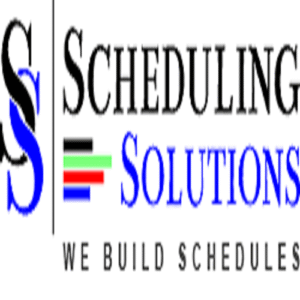
In the rapidly evolving world of recruitment, technology has become a critical enabler in helping organizations find the right talent efficiently. One of the most transformative tools in modern hiring is the interviewing platform, which streamlines the entire interview process from scheduling to evaluation. By leveraging such platforms, companies can enhance candidate experience, improve hiring accuracy, and reduce time-to-hire.
What is an Interviewing Platform?
An interviewing platform is a digital solution designed to facilitate various stages of the interview process. These platforms often include features like video interviewing, automated scheduling, candidate assessment, and collaboration tools for hiring teams. They enable recruiters and hiring managers to conduct interviews remotely or in hybrid formats, making the hiring process more flexible and accessible.
Key Features of Interviewing Platforms
Interviewing platforms vary in complexity, but most offer several core features:
- Video Interviewing
Video interviews allow recruiters to connect with candidates regardless of geographic location. This feature saves travel time and expenses while expanding the talent pool. - Automated Scheduling
By integrating with calendar tools, interviewing platforms enable candidates and interviewers to select suitable time slots automatically, minimizing scheduling conflicts. - Pre-Recorded Interviews
Candidates can record responses to preset questions at their convenience, allowing recruiters to review answers asynchronously. - Assessment Tools
Many platforms include built-in skill tests, coding challenges, or psychometric assessments to objectively evaluate candidate capabilities. - Collaboration Features
Shared notes, rating systems, and feedback mechanisms allow hiring teams to collaborate efficiently on candidate evaluation. - Integration Capabilities
Interviewing platforms often integrate with applicant tracking systems (ATS), HR software, and communication tools to create a seamless hiring workflow.
Benefits of Using an Interviewing Platform
- Improved Efficiency
By automating scheduling and enabling remote interviews, interviewing platforms significantly reduce administrative burdens and speed up the hiring process. - Enhanced Candidate Experience
Candidates appreciate the convenience of flexible interview timing and the option to participate from any location, which reflects positively on the employer brand. - Cost Savings
Eliminating the need for in-person interviews can save companies money on travel, accommodation, and venue expenses. - Better Hiring Decisions
With tools like standardized assessments and recorded interviews, recruiters can make more objective, data-driven hiring decisions. - Access to a Global Talent Pool
Remote interviewing capabilities enable organizations to consider candidates from different regions, improving diversity and access to specialized skills.
Use Cases for Interviewing Platforms
- Tech Recruitment
Interviewing platforms often feature coding challenges and technical assessments tailored to software developers and engineers. - Campus Hiring
Mass recruitment events benefit from automated scheduling and bulk interview management. - Remote Workforces
Companies with distributed teams use these platforms to maintain consistent hiring standards regardless of location. - Temporary Staffing
Quick turnaround hiring requires efficient tools that interviewing platforms provide.
How to Choose the Right Interviewing Platform
When selecting an interviewing platform, consider the following factors:
- Ease of Use
The platform should be intuitive for both candidates and interviewers, reducing friction in the hiring process. - Customization Options
Flexibility to tailor interview questions, formats, and assessment criteria to your company’s needs is important. - Security and Privacy
Ensure the platform complies with data protection laws and secures sensitive candidate information. - Integration with Existing Systems
Compatibility with your ATS and HR tools helps maintain a unified recruitment workflow. - Support and Training
Reliable customer support and training resources facilitate smooth onboarding and ongoing usage.
Challenges and Considerations
While interviewing platforms offer many advantages, organizations should be mindful of certain challenges:
- Technology Access
Candidates may face barriers such as poor internet connectivity or lack of suitable devices. - Human Element
Over-reliance on automated assessments can miss subtle human factors that influence candidate fit. - Data Privacy
Handling candidate data requires vigilance to comply with regulations like GDPR and CCPA. - Technical Glitches
Unexpected technical issues during live interviews can disrupt the process.
Future Trends in Interviewing Platforms
The interviewing platform landscape continues to innovate, with trends including:
- Artificial Intelligence
AI-powered tools for analyzing video interviews, detecting sentiment, and predicting candidate success. - Virtual Reality (VR) Interviews
Immersive environments simulate real-world job scenarios for better candidate evaluation. - Gamified Assessments
Engaging candidates through game-like tasks to measure skills and personality traits. - Accessibility Improvements
Features to support candidates with disabilities and multiple languages. - Real-Time Analytics
Providing hiring teams with instant insights to improve decision-making.
Conclusion
Interviewing platforms are transforming the recruitment process by making interviews more accessible, efficient, and data-driven. They enable organizations to save time, reduce costs, and enhance candidate experience while supporting fairer and more objective hiring decisions.
Choosing the right interviewing platform requires understanding your specific hiring needs and evaluating platforms based on usability, features, integration, and security. As technology continues to advance, these platforms will offer even more sophisticated tools to help organizations secure the best talent in a competitive market.
By adopting an interviewing platform, businesses can future-proof their hiring strategy, improve collaboration across hiring teams, and deliver a seamless candidate journey from application to offer.





